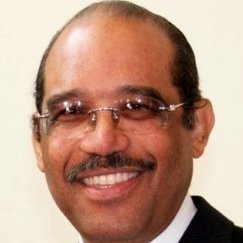A retired U.S. Army colonel faces a federal bribery and money-laundering charge connected to an $84-million port infrastructure and buildings project in Haiti, the Dept. of Justice says.
Joseph Baptiste, of Fulton, Md., was arrested on Aug. 29 and charged with one count of conspiring to break the Foreign Corrupt Practices Act and launder funds, DOJ says.
Federal officials allege that Baptiste, 64 and a practicing dentist, sought bribes from undercover Federal Bureau of Investigation agents, who were pretending to be possible investors in the project, located in what DOJ said was Moles Saint Nicolas, in northwestern Haiti.
Baptiste's attorney, Donald LaRoche, told ENR in an interview, "My client stands on his innocence, and we believe in his innocence."
Baptiste had an initial court appearance on Sept. 7 in U.S. District Court in Boston and was released on a $250,000 secured bond, said Christina DiIorio Sterling, a spokesperson for the U.S. Attorney for Massachusetts. She said the government has 30 days from Sept. 8 to indict.
An FBI agent's statement accompanying the DOJ complaint said the project was to include cement factories, a shipping-vessel recycling station, a transshipment facility, a power plant, a petroleum depot and tourist-related facilities.
The document alleges that Baptiste told an undercover agent at a November 2014 meeting at a Boston-area hotel that, to get the project approved, Baptiste would have to send payments to officials in Haiti through a Maryland-based non-profit organization, which he controlled.
The case arose from an FBI investigation, starting in August 2014, of Haitian businessmen "who were offering to facilitate bribes to high-level officials of the government of Haiti in exchange for the ability to obtain or retain business in that country," the affidavit says.
Baptiste allegedly solicited bribes from an undercover FBI agent in conversations that were part of an apparent sting operation by the bureau, according to the court document.
The affidavit says Baptiste discussed the agent's making a possible investment in the port project. It adds that Baptiste told him "a 'pay-to-play' system existed in Haiti and described bribe payments that would have to be made in connection with the port project, as well as how they could be made."
The document also says Baptiste said he could use his Maryland nonprofit "to conceal and facilitate bribe payments to Haitian officials."
According to excerpts from what the document said was a "consensually recorded" conversation, Baptiste said, "I would say this, like, we're tipping them to do the right thing—it's like a tip." In the affidavit, the FBI agent says he believed that a "tip" meant a bribe.
In November 2015, the FBI agent and another undercover colleague met with Baptiste and two other individuals—unnamed in the affidavit—at a Boston-area hotel. The document says Baptiste "solicited the agents to invest in the cement factory, which Baptiste and the other two individuals indicated would be the port project's first phase.
Baptiste told the undercover agents that bribes were necessary to get Haitian government approval for the project, according to the affidavit.
Baptiste later wired two $25,000 payments—one in November 2015, the other in December—to the bank account of the Maryland nonprofit organization. The FBI affidavit says bank records indicate that Baptiste used those funds "for personal purposes."
It adds that Baptiste had said he planned to use future payments from the second agent to pay bribes related to the port project.


